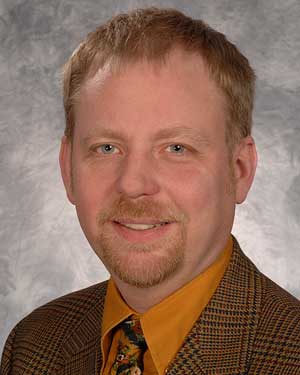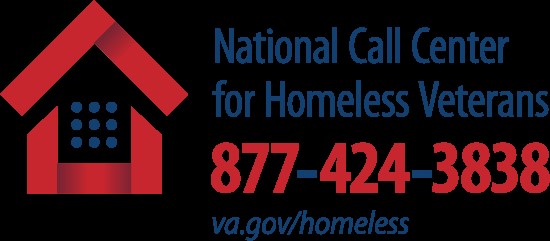Q&A with Michal Wilson
August 5, 2021
Addressing the Opioid Crisis and the Health Needs of Veterans Experiencing Homelessness
 Dr. Michal Wilson is the Medical Advisor for the VHA Homeless Programs, with over 25 years of experience working in VA and the community. Prior to his work at HPO, he was the Chief Mental Health Officers for the Northwest Network, where he oversaw mental health and homeless operations around the country. Not only is Dr. Wilson involved in collaborative efforts to develop new models of care for Veterans, but he has also created a 9-part podcast series to help educate and share resources to medical staff and community members alike to enhance the care of Veterans facing the Opioid Crisis in the midst of experiencing homelessness and COVID. Below, Dr. Wilson shares his background, motivations for his work, and more.
Dr. Michal Wilson is the Medical Advisor for the VHA Homeless Programs, with over 25 years of experience working in VA and the community. Prior to his work at HPO, he was the Chief Mental Health Officers for the Northwest Network, where he oversaw mental health and homeless operations around the country. Not only is Dr. Wilson involved in collaborative efforts to develop new models of care for Veterans, but he has also created a 9-part podcast series to help educate and share resources to medical staff and community members alike to enhance the care of Veterans facing the Opioid Crisis in the midst of experiencing homelessness and COVID. Below, Dr. Wilson shares his background, motivations for his work, and more.
Q: Can you share background on the work that you do with VHA’s Homeless Programs Office (HPO)?
A: This fall, I will have been at the Department of Veterans Affairs (VA) for 16 years and with HPO for 11 years. Prior to joining VA, I worked in mental health. So, in a way, I have been “here” since many of the beginning efforts and pilot programs that now exist in VHA Homeless Programs. I was involved in the 5-year initiative to end Veteran homelessness that began during the Obama administration, and many other programs that make HPO what it is today.
Q: What motivates you to do the work you do?
A: I recall in medical school, one of my professors asking our class, why we chose a career in medicine. Was it because we have a unique interest in helping people or because we have a unique interest in the research and science behind medicine? That was an interesting question for me because it wasn’t one or the other. For me, it was the combination of factors.
I have worked with many populations in many settings, and I have always appreciated the opportunity to help other people and make a difference in their lives. We all want to help. What separates formalized areas, like working in HPO, is not that we desire to help more, but we have acquired the resources and knowledge where we can make those resources available in ways that others may not be able to. With Veterans who are homeless, the need on one hand is very obvious - housing. But along the way we discover that there is a lot of nuance and subtlety that we must continually learn.
Q: What led you to research Veterans’ experiences with opioid addiction? How have you found that homelessness intersects with that issue?
A: From the beginning, I have seen my role in HPO as being a bridge or as an ambassador between Veterans experiencing homelessness and the broader VA health care system. We have always stated that in HPO it isn’t just about housing. It’s Housing First with wraparound services. There are unique needs for Veterans experiencing homelessness, that involve so much more than housing. There is primary care, mental health care, dental care, and so much more that is needed to ensure long-term community integration and success for our Veterans.
Although taking people off the street is one step, it is not the last step. I have worked in primary care, substance abuse disorders, and other sections, and have spent a lot of time thinking about what’s being done for the unique experience of every Veteran experiencing homelessness. This led to research about Naloxone, which is a drug used to treat opioid overdose in emergency situations. Based on that research, I wanted to expand awareness of the opioid crisis and resources to not only our community partners but to everyday people.
Q: What inspired you to begin your podcast, “Battling Two Frontiers: Substance Use Epidemic during a Pandemic”? How did the podcasts change during COVID?
A: We wanted to expand awareness of the opioid crisis and resources. The opioid crisis is everyone’s business and we need staff everywhere to be aware of the epidemic and the unique challenges that have occurred because of COVID-19, and the tools and resources that can be used to prevent an overdose. Initially, our first target audience was our community partners. We asked ourselves a series of questions, such as, “What do they need to know?” “What resources do we want them to be aware of in their first responder role?”
To reach our audience who were partners outside of VA, we chose to develop content as a podcast. That way people can access it wherever they are. Although we started creating the podcast prior to COVID-19, the pandemic came along and interrupted the recording and actually allowed us to modify it to be what it is today. Hence, the title, “Battling Two Frontiers: Substance Use Epidemic during a Pandemic.” We tied together the challenge of living through COVID-19 and with a preexisting opioid epidemic.
Q: What is one thing that you want people to take away from the podcast?
A: We wanted to make the podcast as accessible and relevant to our listeners as possible. What they do with it will vary depending on who they are, whether that’s in health care or in everyday society. But I hope the podcast is something they can act on — promote an intervention, guide someone to a resource, or spread awareness as to what a huge problem this is and making resources available.
We are trying to get enough information out there so that all listeners can take something from it that they can use that will ultimately make a difference. We are not going to stop the crisis just with our health care system, it will take so many levels and players. It’s an entire societal effort.
Q: Of all the interviews you’ve conducted as part of the podcast, what’s most memorable to you and why?
A: The most memorable experience was the collective passion of everyone I spoke with. It was such a diverse group of individuals that all played different roles from researchers, to thought leaders, to active medical personnel and people that got involved over time. These individuals were deeply concerned with the crisis and wanted to turn the tide in the opioid epidemic. I think everyone I spoke to was doing important and significant things, so I can’t really separate one from the other. Different listeners will remember one podcast from the other depending on their personal experiences. But there are so many people actively working on this and trying to make a difference, more than I will ever be able to interview, which gives us hope for improvement.
Q: What is one thing you want all Veterans to know about your work?
A: I think the theme here is trying to translate and effectively utilize our broader efforts, our data, our communications and education in a way that reaches each and every individual Veteran. Health care needs to be considerate of the macro and micro levels simultaneously. Not everyone is in the majority, not everyone prioritizes their issues the same way, not everyone experiences challenges and obstacles in the same way. Our goal is to get the public to understand what to look for, to be attentive, to listen, and to create individualized plans of care. That is the goal and hope for Veterans, and every person, in our country. Services and treatment that fit you, and that work for you and to be aligned with your needs.
Q: What is your suggested first step towards recovery for a Veteran or family member who may be struggling with opioid addiction?
A: Maybe the most important message is that this is a beatable problem. Opioid addiction is treatable and there are resources and forms of care that meet people where they are and help them get to the next level of treatment. People should be hopeful. But this is also very serious, and the first step is to engage with the resources that can begin to make a difference. Health care providers, family, and friends are there to support people that need assistance. If someone reading this, or someone who listens to the podcast, recognizes something in themselves, please take the first step. Let your family, friends, loved ones and health care providers know what is going on and help you find a path forward.

















